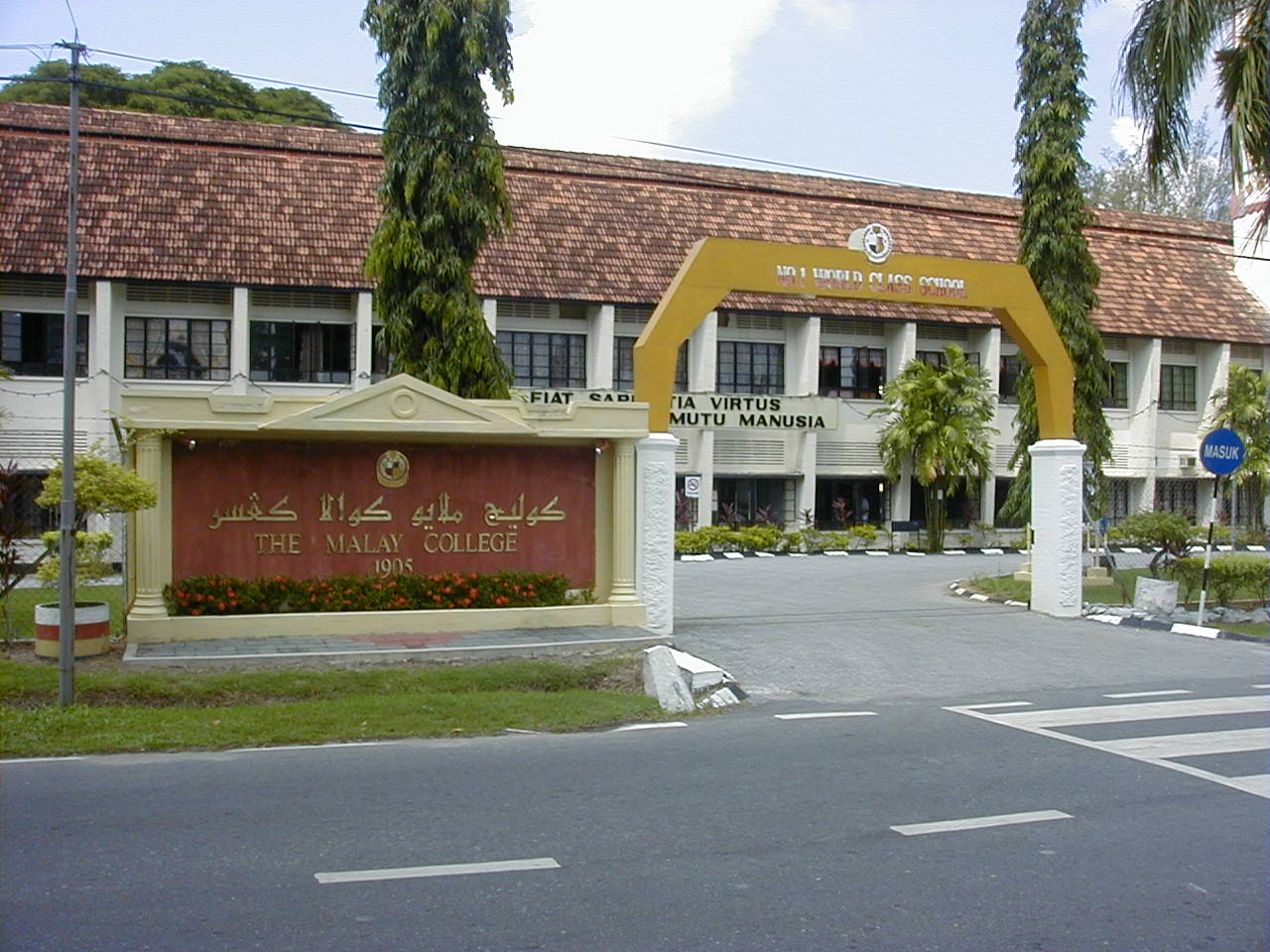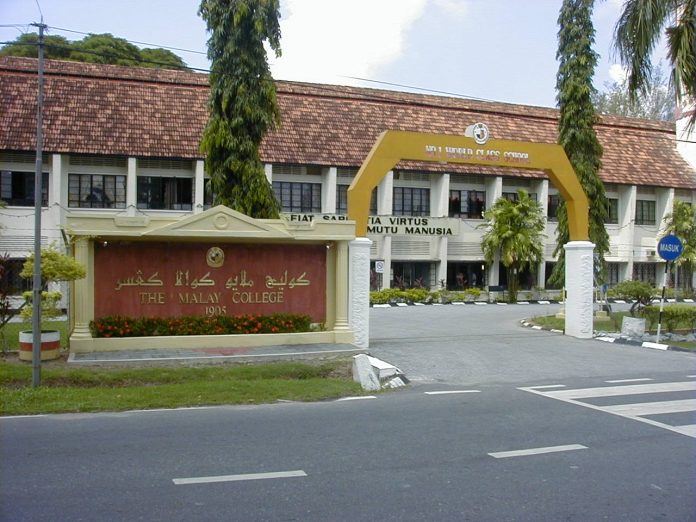
November or December, 1954 or thereabout. The father’s face was flushed with excitement when the Headmaster told him his son was going to a boarding school in Kuala Kangsar.
The boy had not the foggiest idea where it was. Neither did he know why his father took delight in the news.
His nonchalance continued even after listening to the explanation given to his maternal grandmother about the Malay College being the preserved domain of the royalties and Malay aristocratic scions.
The grandmother was less than amused about the development. She made this known with grumblings under her breath in the patois of the region that could be summarised by the question, why MCKK?
Apparently she had wanted him to switch to Sekolah Arab Sultan Zainal Abidin the following year.
His interest in that boarding school began to take root upon being told that Terengganu pupils would take a Malayan Airways flight [which kampung boy would not be interested in a free aeroplane ride] from the Kota Bharu Pengkalan Chepa airport on 1 January, 1955 – or was it 2 January – to Bayan Lepas in Penang. The school bus would then ferry them to the Perak royal town.
The ensuing eight years saw that boy morphing into a young man, a true blue budak kolet [college boy] as it were. By the time the Cambridge School Certificate exam was over in December, 1962 a real man left the Big School for the train station en route to Kuala Kerai and Kuala Terengganu.
Not once did it occur to him to reflect upon his grandmother’s “Why MCKK” question during those years. His KP [the King’s Pavilion] year was taken up by his learning the finer points of trying to be a boarding school boy along the line of Eton or Harrow or Winchester. He had to; Miss Anlett Louis, one of the two Standard II mistresses, did not take too kindly to anyone clattering his cutlery, for instance.
And he enjoyed, much too much, his seven years in the Big School to even remember that his grandmother had reservations about him joining the College in the first instance.
Indeed he enjoyed, for example, dining at the High Table; not that Mutalib’s fare under the supervision of Thayu, the Head Houseboy, was any better than that dished out to everyone else.
Miss Louis’s stricture gave him the confidence in sitting at the same table as the duty master or the Headmaster. He looked forward to it as it was his introduction to fine dining, although he did not think of it that way then.
He learnt to cope with rules as an integral part of life and accepted punishments, in the form of detention classes and canings by the Headmaster, stoically. But he took them unflinchingly like a man, a real man.
Out in the real world years later his acceptance of and respect for rules stood him in good stead.
More importantly, his College life was ruled by the ever present bell and he lived by the impersonality of its ring. He knew exactly what each ring in a 24-hour cycle meant; as did all College boys.
The regimen of a boarding school life grew on him, took him and the College boys over and turned them into efficient but regimented young men.
The freedom that they enjoyed on the Big School playing field as witnessed by the Big Tree helped shape their personalities and developed their demeanour and confidence.
The independence that they enjoyed in the classroom and the leeway allowed by the teachers in their pursuit of knowledge were instrumental in the harnessing of their, in the main, strong opinions.
By the time that kampung boy left the Big School in December, 1962 his College mates had begun to be his brothers for life.
He was, by then, completely immersed in and guided by the culture of the College. He abided by her value system and lived the College ethos as encapsulated by the College motto – Fiat Sapientia Virtus, Let Manliness Come Through Wisdom.
He still does, as do all budak kolet. Almost all that is.













![[Video] monoloQue menampilkan Aizat Amdan – Urusan Seri Paduka Baginda (Versi Agong)](http://berita.mcoba.org/wp-content/uploads/2019/08/monoloQue-menampilkan-Aizat-Amdan-Urusan-Seri-Paduka-Baginda-218x150.jpg)
















